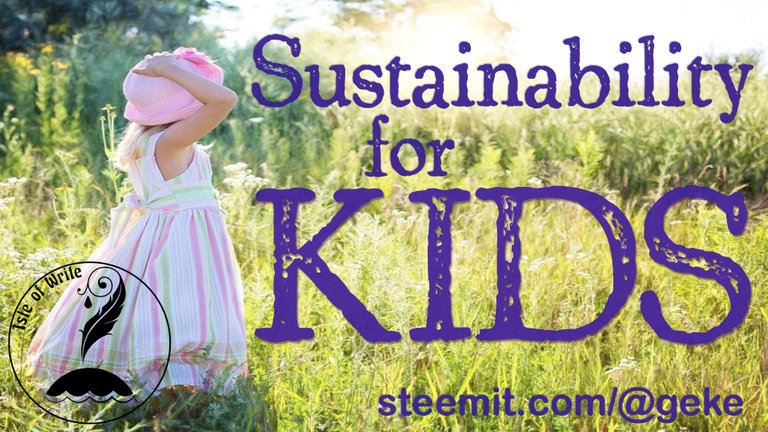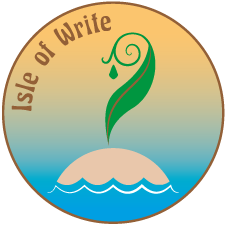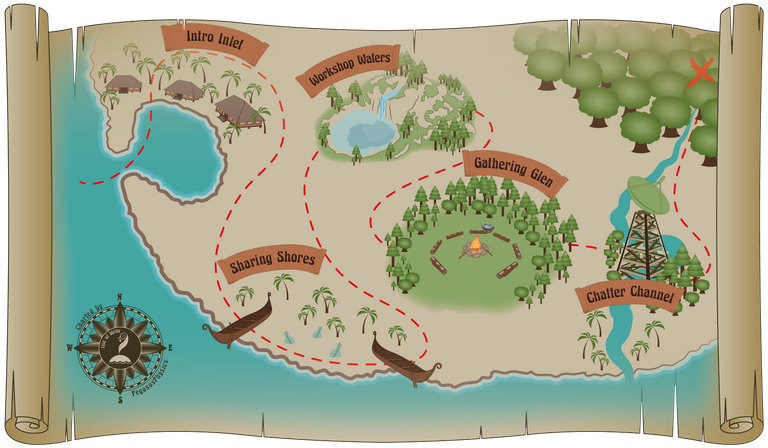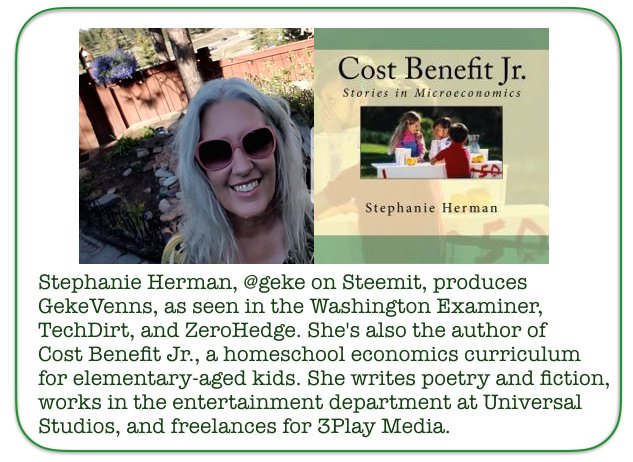
Part 1 | Part 2 | Part 3 | Part 4 | Part 5 | Part 6 | Part 7 | Part 8 | Part 9 | Part 10 | Part 11 | Part 12 | Part 13 | Part 14
To pick up the story where we left off, Able had created wealth for himself through this process: savings → capital → wealth. And now, his friends Baker and Charlie wanted to do the same, so they asked if they could borrow his net.
But Able had put himself through a lot of hardship in creating that net. He didn't eat for a whole day so he could have time to build it, and taking time off from fishing and eating was a huge risk for him – what if the net hadn't worked? He had invested his own time, effort and endured hardship and risk to make his fishing net a reality. So he didn't want to just loan it out to others. What if they broke it or lost it?
Baker and Charlie understood Able's concerns, so they asked if they could borrow his extra fish, instead. That way, they'd have something to eat while they spent a day building their own net. And when they were done, they would repay Able with their own extra fish.
But Able wasn't having it. He pointed out that if they failed in building a net, Able would lose his savings. These “straight” loans – where he lends them something and later they pay back the same amount – would give Able no incentive to take the risk. If they failed in their attempt to build a net, he'd never get his extra fish back. In that scenario, Able would have everything to lose and nothing to gain, while Baker and Charlie would have everything to gain and nothing to lose. That didn't seem fair.

But Baker and Charlie were motivated to make this work so they could also have a net. So they offered to pay Able more in return than he would be loaning them. If he loaned them one of his extra fish, they would pay him back two fish! The hope of receiving back more than he loaned out gave Able an incentive to take the risk: the three men had discovered the concept of “interest.”
In this scenario, both sides would benefit – it's a win-win. Able would be richer (have more fish than he had before) without doing any more work, and Baker and Charlie could use Able's capital (his savings) without having to go hungry, themselves.
But what made this loan possible was the fact that Able had savings. If he was still consuming everything he produced, he'd have nothing left over to loan the other guys. And without the ability to borrow, Baker and Charlie would have a much tougher time generating wealth for themselves. Savings is what makes this entire scenario possible – savings loaned out with the expectation of receiving interest in return.
It's also important to understand the function of interest in this exchange: interest also limits consumption (they must pay back their extra fish rather than consuming them) and gives the guys a greater motivation to conserve their resources. Both sides now have something to lose if the attempt fails. When both sides have something to lose, people are more motivated to save, try harder, and get the job done.
This is how an economy grows sustainably: Able gets richer from limiting his consumption (his savings). Baker and Charlie get richer from Able's reduced consumption in hopes of generating savings of their own to pay back. And since nobody's being forced or encouraged to consume, they can see their own incentives to sometimes consume less to produce more wealth.
When looking at economic growth this way, it seems silly to believe the Keynesian idea that consumption would grow an economy and generate wealth. It's really just the opposite.
What Able did to increase his own wealth and the wealth in his community was to save (consume less) voluntarily. He chose to do that. What he accomplished is what the sustainability movement called voluntary simplicity encourages: all sorts of similar ways to save our personal resources and society's resources. We'll delve more into that idea next time.
This article is one of a series I'm writing for the 30 Day Writing Challenge hosted by @dragosroua. If you want to join, write on a topic that interests you or that you'd like to learn more about and use the tag #challenge30days. As Dragos says, "The key word sequence here is: "write every day."

Think you'd like to wash up on our shore?
The treasure map will bring you right to our door!

cover art created with a pixabay.com image ]

Great story from Irwin Schiff, and his son updated it.
Yes! I wish every economist could relate these ideas in a way that kids can understand. Our society would be much different. I'd like to get a bunch of his comic books and just hand them out to passing children. 😊
awesome writings @geke
It's just amazing how you bring out the concept of wealth creation through the eyes of a kid and the sustainability concept in general. Thank you for the great fish story , eagerly waiting for the next part. SteemOn!
Excellent, very beautiful post thanks for sharing
So important to pass along these lessons in an easy-to-understand format to kids before they get too old and set in their ways to care. Maybe that's even how we got into much of the mess of our world today.
Bright Blessings!